
* Image source: Hankyoreh
'A joint military-civilian investigation team boards the stern of the Cheonan to examine the cause of the accident, April 18.'N.Korea issues first statement on Cheonan sinking
Posted on : Apr.19,2010 13:06 KST
Experts say that the statement should add to the calls for caution in linking N.Korea to the Cheonan sinking without clear evidence.
Posted on : Apr.19,2010 13:06 KST
Experts say that the statement should add to the calls for caution in linking N.Korea to the Cheonan sinking without clear evidence.
North Korea issued its first official statement on the sinking of the Patrol Combat Corvette (PCC) Cheonan on Saturday, breaking its silence on the incident twenty-two days after the vessel sank on March 26. The remarks essentially stated that the rumors that the vessel sank because of a North Korean attack are “fabrications.”
A military commentator with North Korea’s official Korean Central News Agency (KCNA) said Saturday, “Since it became impossible to determine the cause of the warship’s sinking, traitorous thugs, including belligerent fanatics in the South Choson puppet military and right-wing conservative politicians, are scheming to link the accident with us.” The commentator continued, “Recently, they have fabricated and are spreading rumors of North Korean involvement, saying that an ‘external explosion’ occurred due to a torpedo, and that the torpedo was very likely launched by one of our submersibles or semi-submersibles.” In stating factors causing the rumors, the commentator cited their use by ruling government for the June 2 regional elections, an attempt to paper over the failure of the government’s North Korea policy, and the intention of sustaining a mood for international sanctions against North Korea. In the process, the commentator twice used the expression “the traitor Lee Myung-bak,” an unusual occurrence. This is the second time in 2010 that North Korea has criticized President Lee by name, following a pseudonymous contribution printed in the March 12 edition of the Rodong Sinmun, and the first time the word yeokdo, traitor, has been used.
The commentator called the incident that befell the Cheonan “an accidental unexpected sinking” and said that it has been “viewed as an unfortunate accident that should not happen.”
This public statement from North Korea is also noteworthy for both its timing and the person chosen to give the statement. Institute for Peace Affairs (IPA) Research Director Jang Yong-seok said Sunday that it is important to note that statements made by South Korean Defense Minister Kim Tae-young, who said Friday that the sinking of the Cheonan was a “major situation in terms of national security,” and by U.S. Assisant Secretary of State Philip J. Crowley, who said during an April 15 (local time) briefing that “obviously North Korea’s behavior in the region has an impact in terms of creating the atmosphere for the six-party process to move forward.” In other words, North Korea’s statement should be interpreted as a message not only to South Korea but also to the U.S. and Chinese governments as well, in response to statements by high-ranking figures in the South Korean and U.S. governments that seemed to suggest North Korean involvement. Yang Mu-jin, professor of the University of North Korean studies, said, “They have an intention of checking spreading rumors about North Korean involvement.”
In regards to the standing of the KCNA military commentator making the statements, a South Korean government official said, “When viewed in terms of formality, this statement is really representative of the lowest official level.” Professor Yang also said that if the South Korean government officially mentions North Korean involvement, North Korea will in turn raise both the official level of the person making the statement and the intensity of the remarks. Yang added, “Conflict between North Korea and South Korea could intensify.”
Inje University Professor Kim Yeon-chul said that determining the cause of the sinking is a technical matter for the military to determine. Professor Kim also said, “Since there will inevitably be a negative impact on inter-Korean relations if North Korean involvement is mentioned without any clear evidence, the government should maintain a cautious approach.”
Following the Rangoon bombing that killed 17 South Korean officials on Oct. 9, 1983, and the bombing of Korean Air Flight 858 on Nov. 29, 1987, North Korea denied involvement through KCNA statements issued three to seven days after the incidents.
Please direct questions or comments to [englishhani@hani.co.kr]
* Related articles
Korea Times'
N. Korean Submarines Pose Grave Threat to Security'
04-19-2010 19:08
Korea Times
US Suspects N. Korean Involvement
04-19-2010 17:51
Korea Times
'Seoul Could Take Sunken Ship to UNSC'
04-18-2010 18:17
Hankyoreh
Cheonan sinking likely caused by bubble jet from explosion
The joint military-civilian investigation team is now looking for the source of the explosion
Posted on : Apr.17,2010 14:02 KST
Modified on : Apr.17,2010 14:12 KST
Hankyoreh
April 16, 2010
President Lee confirms thus far “No evidence of N.Korean involvement in Cheonan incident”

![[URGENT PLEA: In Update] EMERGENCY in GANGJEONG Since AUG. 24, 2011](http://2.bp.blogspot.com/-3iz8k-USXVY/TlmRYhhIYtI/AAAAAAAAL2c/9dbF85ZIkIs/s227/jejusit.jpg)
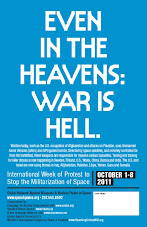
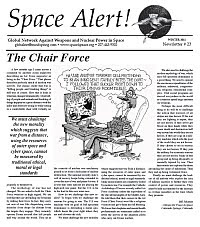

![[Solidarity from Japan for the Jeju] 253 individuals and 16 groups/organizations](http://2.bp.blogspot.com/_gnM5QlRx-4c/TR_YeNVE1yI/AAAAAAAAHWQ/ARyf6oQN0S0/S227/jeju_12_10j.jpg)
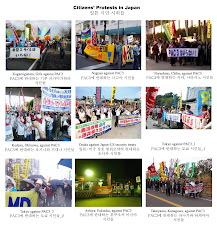
![[Translation] Korean organizations' statement: Immediately cancel the joint ROK-US drill Nov 26](http://2.bp.blogspot.com/_gnM5QlRx-4c/TPOE8VKXHFI/AAAAAAAAGlM/8lryt-8sFjc/S227/1.jpg)
![HOT! [Hankyoreh Hani TV] Beneath the Surface: the investigation into the sinking of the Cheonan](http://4.bp.blogspot.com/_gnM5QlRx-4c/TOI83qht8aI/AAAAAAAAGXU/22SW6Q5ntV8/S227/HaniTV%2BCheonan.gif)
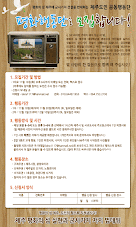
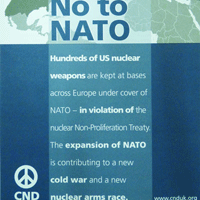

![[Translation]Statement against illegal inspection and unjust lay-off by the Kunsan USAFK!(Nov_2010)](http://4.bp.blogspot.com/_gnM5QlRx-4c/TOPLsVkZMqI/AAAAAAAAGZs/3YnnckIyAaY/S227/gunsan%2Bprotest.gif)
![[Translation] Korean organizations' statement against dispatching special force to the UAE on Nov.](http://4.bp.blogspot.com/_gnM5QlRx-4c/TOP95zHXlCI/AAAAAAAAGak/E0Ug1XtUFfM/S227/antiwarpeace.jpg)
![[Translation] Stop, Joining MD!: South Korean activists' statement and writing on Oct. 25, 2010](http://3.bp.blogspot.com/_gnM5QlRx-4c/TOP7Es4_2sI/AAAAAAAAGac/eWVMPD-U4p0/S227/StopMD.jpg)
![[In Update] People First, NO G-20 (Nov. 6 to 12, Korea)](http://2.bp.blogspot.com/_gnM5QlRx-4c/TJd53XBzHlI/AAAAAAAAFQo/ldO9JPE3eqo/S227/left21_G20.jpg)
![[International Petition] Stop US helipad plan in Okinawa to save great nature](http://4.bp.blogspot.com/_gnM5QlRx-4c/TKC2AHRNzBI/AAAAAAAAFUo/yGWXODTw_uM/S227/yanbaru_w.jpg)

![[Global Network] against the first launch of Quasi-Zenith Satellite, Japan, on Sept. 11, 2010](http://4.bp.blogspot.com/_gnM5QlRx-4c/TIowa1boy4I/AAAAAAAAFDI/82rAi98uq-c/S227/Qzss-45-0_09.jpg)

![[In update] Some collections on the Koreans’ protests against the sanction & war on Iran](http://4.bp.blogspot.com/_gnM5QlRx-4c/TJMvke6t8zI/AAAAAAAAFO4/tamQ8LUnOOA/S227/No+Sanction+on+Iran.jpg)
![[Three International Petitions] to End the Korean war and peace treaty(or peace resolution)](http://1.bp.blogspot.com/_gnM5QlRx-4c/THef7bzWxYI/AAAAAAAAE44/wwdzSDfYhdw/S227/border.jpg)
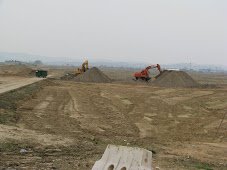


![[Collection of Documents] No Base Learning and Solidarity Program_Korea(June 14 to 20, 2010)](http://1.bp.blogspot.com/_gnM5QlRx-4c/TCTvVuN8NeI/AAAAAAAAEek/8vBJVaHdk10/S227/No-Base-banner.jpg)
![Site Fwd:[John Hines] A U.S. Debate coach’s research trip on the Issues of Korea](http://3.bp.blogspot.com/_gnM5QlRx-4c/TINCO36mzzI/AAAAAAAAE_w/Rds12NcBOXM/S227/Jeju-Peace-Tour.jpg)


![[News Update] Struggle Against the Jeju Naval Base since Jan. 18, 2010](http://1.bp.blogspot.com/_gnM5QlRx-4c/S1vvWaP25uI/AAAAAAAACkg/QvpW1tgOlKM/S226/scrum1.jpg)


![[Urgent] Please spread the Letter!: There was no Explosion! There was no Torpedo! (May 26, 2010)](http://4.bp.blogspot.com/_gnM5QlRx-4c/S_9JmsKEU7I/AAAAAAAAEP8/sAWjSPqxzUI/S227/grounded.jpg)
![Text Fwd: [Stephen Gowans]The sinking of the Cheonan: Another Gulf of Tonkin incident](http://1.bp.blogspot.com/_gnM5QlRx-4c/TAL_FtYKQ-I/AAAAAAAAERE/NEEMijiEcRM/S227/lee-myung-bak.jpg)
![[Japan Focus]Politics in Command: The "International" Investigation into the Sinking of the Cheonan](http://1.bp.blogspot.com/_gnM5QlRx-4c/TBMJ2syJzyI/AAAAAAAAEZU/uTYZccU5vyk/S227/wen_jiabao_and_lee_myungbak.png)
![[Japan Focus] Who Sank the SK Warship Cheonan? A New Stage in the US-Korean War and US-China](http://2.bp.blogspot.com/_gnM5QlRx-4c/S_iQ2vE5ZpI/AAAAAAAAEOU/Oo1SPcAe8FE/S227/buoy_map.gif)
![[Updated on 12/13/10] [Translation Project] Overseas Proofs on the Damages by the Military Bases](http://4.bp.blogspot.com/_gnM5QlRx-4c/S-qSj59gPLI/AAAAAAAAEGM/mwjlFtPE-jo/S227/missile.jpg)
![[International Petition] Close the Bases in Okinawa](http://3.bp.blogspot.com/_gnM5QlRx-4c/S8-z3DYNwNI/AAAAAAAADo4/OswTSchK09M/S227/2.jpg)

![[In Update]Blog Collection: No Korean Troops in Afghanistan](http://4.bp.blogspot.com/_gnM5QlRx-4c/SwnlLD9IewI/AAAAAAAAB9E/oUPssnpNidA/S226/No-Troops-to--Afghanistan.jpg)
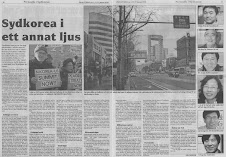

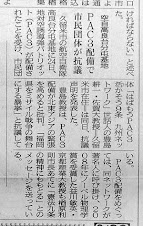

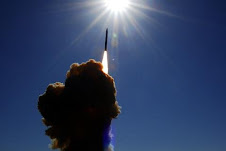


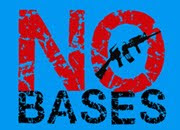
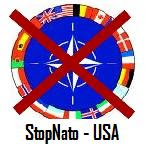


No comments:
Post a Comment